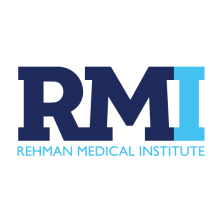Acquired immunodeficiency syndrome (AIDS) is a chronic, potentially life-threatening condition caused by the human immunodeficiency virus (HIV). By damaging your immune system, HIV interferes with your body's ability to fight infection and disease. HIV weakens your immune system to the point that you have AIDS.
There's no cure for HIV/AIDS, but medications can dramatically slow the progression of the disease. These drugs have reduced AIDS deaths in many developed nations.
Symptoms:
The symptoms of HIV and AIDS vary, depending on the phase of infection.
1. Primary infection (Acute HIV)
Some people infected by HIV develop a flu-like illness within two to four weeks after the virus enters the body. This illness, known as primary (acute) HIV infection, may last for a few weeks. Possible signs and symptoms include:
• Fever
• Headache
• Muscle aches and joint pain
• Rash
• Sore throat and painful mouth sores
• Swollen lymph glands, mainly on the neck
• Diarrhea
• Weight loss
• Cough
• Night sweats
These symptoms can be so mild that you might not even notice them. However, the amount of virus in your bloodstream (viral load) is quite high currently. As a result, the infection spreads more easily during primary infection than during the next stage.
2. Clinical latent infection (Chronic HIV)
In this stage of infection, HIV is still present in the body and in white blood cells. However, many people may not have any symptoms or infections during this time.
This stage can last for many years if you're not receiving antiretroviral therapy (ART). Some people develop more severe disease much sooner.
3. Symptomatic HIV infection
As the virus continues to multiply and destroy your immune cells — the cells in your body that help fight off germs — you may develop mild infections or chronic signs and symptoms such as:
• Fever
• Fatigue
• Swollen lymph nodes — often one of the first signs of HIV infection
• Diarrhea
• Weight loss
• Oral yeast infection (thrush)
• Shingles (herpes zoster)
• Pneumonia
4. Progression to AIDS:
When AIDS occurs, your immune system has been severely damaged. You'll be more likely to develop opportunistic infections or opportunistic cancers — diseases that wouldn't usually cause illness in a person with a healthy immune system.
The signs and symptoms of some of these infections may include:
• Sweats
• Chills
• Recurring fever
• Chronic diarrhea
• Swollen lymph glands
• Persistent white spots or unusual lesions on your tongue or in your mouth
• Persistent, unexplained fatigue
• Weakness
• Weight loss
• Skin rashes or bump
How does HIV become AIDS?
HIV destroys CD4 T cells — white blood cells that play a large role in helping your body fight disease. The fewer CD4 T cells you have, the weaker your immune system becomes.
You can have an HIV infection, with few or no symptoms, for years before it turns into AIDS. AIDS is diagnosed when the CD4 T cell count falls below 200 or you have an AIDS-defining complication, such as a serious infection or cancer.
How HIV spreads?
To become infected with HIV, infected blood, semen or vaginal secretions must enter your body. This can happen in several ways:
1. By having sex: HIV is a sexually transmitted infection (STI). You may become infected if you have vaginal, anal or oral sex with an infected partner whose blood, semen or vaginal secretions enter your body. The virus can enter your body through mouth sores or small tears that sometimes develop in the rectum or vagina during sexual activity.
2. By sharing needles: Sharing contaminated IV drug paraphernalia (needles and syringes) puts you at high risk of HIV and other infectious diseases, such as hepatitis.
3. From blood transfusions: In some cases, the virus may be transmitted through blood transfusions. American hospitals and blood banks now screen the blood supply for HIV antibodies, so this risk is very small.
4. During pregnancy or delivery or through breast-feeding: Infected mothers can pass the virus on to their babies. Mothers who are HIV-positive and get treatment for the infection during pregnancy can significantly lower the risk to their babies.
How HIV doesn't spread?
You can't become infected with HIV through ordinary contact. That means you can't catch HIV or AIDS by hugging, kissing, dancing or shaking hands with someone who has the infection. HIV isn't spread through the air, water or insect bites.
Risk factors:
Anyone of any age, race, sex or sexual orientation can be infected with HIV/AIDS. However, you're at greatest risk of HIV/AIDS if you:
1. Have unprotected sex: Use a new latex or polyurethane condom every time you have sex. Anal sex is riskier than is vaginal sex. Your risk of HIV increases if you have multiple sexual partners.
2. Have an STI: Many STIs produce open sores on your genitals. These sores act as doorways for HIV to enter your body.
3. Use IV drugs: People who use IV drugs often share needles and syringes. This exposes them to droplets of another people's blood.










